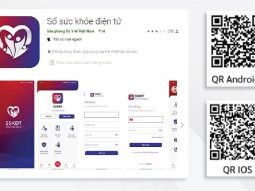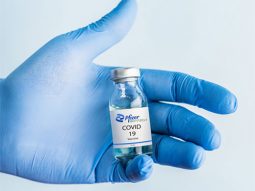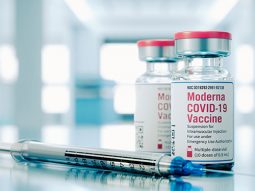WHAT ARE ANTIBODIES?
Antibodies are proteins made by the B cells of the immune system to fight infections like viruses and help to ward off future occurrences by those same infections. The production of antibodies is called ‘humoral’ immune response (there is another form of immune response called ‘cellular’).
Upon first encountering a virus, short-lived B cells, called ‘plasmablats’, rapidly proliferate and produce antibodies in large amounts. Antibodies following exposure to a SARS-CoV-2 (Covid-19) infection can take weeks to develop in the body and it is unknown how long they stay in the blood. Plasmablasts recede after a virus is cleared from the body, so antibody levels always drop a few months after any acute infection, the rate at which antibodies diminish in the blood differs depending on the type of infection and each individual person.
However, specific longer-lasting B cells, called ‘memory cells’, take up residence in the bone marrow and in lymph nodes, remaining quiescent, ready to take action when needed. They provide long-term protection against reinfection that lasts for years after the virus has been cleared, by quickly producing so-called neutralizing antibodies in case of a new encounter with the virus.
Evidence indicates that antibody development following Covid-19 infection likely confers some degree of immunity from subsequent infection for at least 6 months and probably much longer. However, it is not known to what extent emerging viral variants could impact protection from subsequent infection.
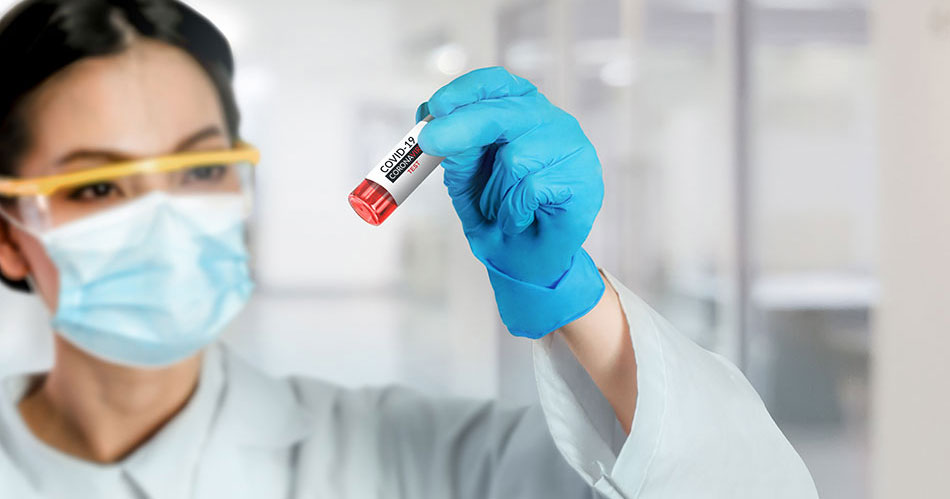
WHAT HAPPENS AFTER VACCINATION?
Covid-19 vaccines induce a strong humoral and cellular immune response. Neutralizing antibodies are detected in the blood after vaccination, however:
- There is no correlation between the level of antibodies detected and the level of protection from Covid-19 after vaccination;
- Like for the natural response to infection, antibody levels in the blood may wane over time.
For these reasons, antibody testing is not recommended to assess immunity to SARS-CoV-2 after vaccination.
Importantly, studies have demonstrated that people who were infected and get vaccinated have a very strong immune response, stronger than the natural immune response. This is the reason why it is recommended that people with past Covid-19 infection be vaccinated.
WHY IT’S DONE?
If you have not yet been vaccinated, antibody testing for Covid-19 may be done if:
- You had symptoms of Covid-19 in the past but were not tested;
- A positive antibody test can help support a diagnosis when patients present with complications of Covid-19, such as multisystem inflammatory syndrome for children (MIS-C), or other post-acute sequelae of Covid-19.
Antibody testing for Covid-19 should NOT be used for:
- Determining the immune status of a patient (i.e. protection against future infection);
- Determining Covid-19 vaccination status of a patient or the serological response to vaccination.
- The diagnosis of acute infection: the PCR test remains the gold standard to diagnose Covid-19 infection. Covid-19 antibody testing should not be used as a diagnostic test, except in very rare circumstances, for example severe illness with negative PCR tests, where serology results may be helpful for clinical management. A positive antibody test at least 7 days following acute illness onset in persons who had a previous negative antibody test and had a negative PCR test might indicate SARS-CoV-2 infection between the dates of the negative and positive antibody tests.
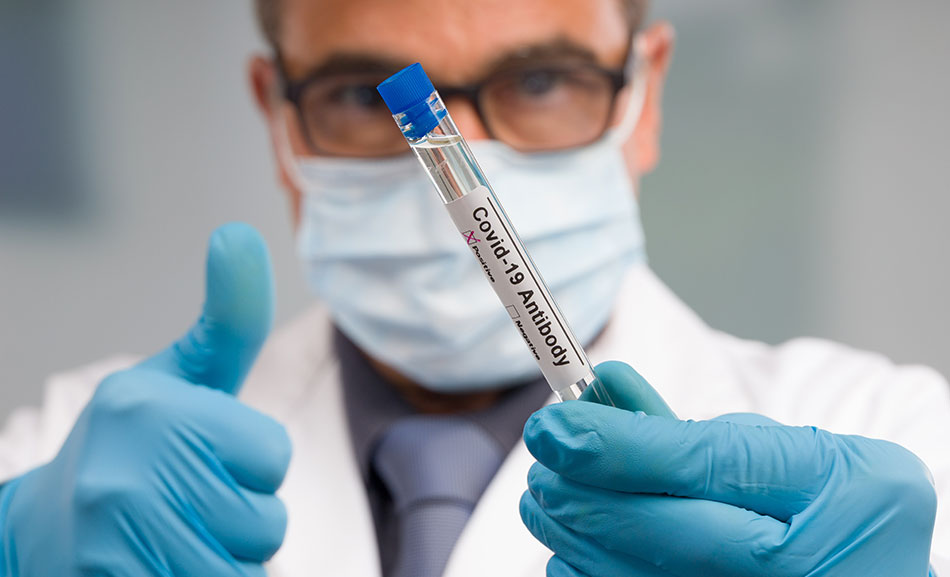
WHAT DOES A POSITIVE ANTIBODY TEST MEAN?
A positive antibody test indicates a person has antibodies for Covid-19 as a result of either:
- Past infection with SARS-CoV-2, even if you didn’t have any symptoms of Covid-19. It can take 1 to 3 weeks after the infection for your body to make antibodies, these antibodies may be detected in your blood for several months or more after you recover from Covid-19;
- Vaccination against Covid-19.
WHAT DOES A NEGATIVE ANTIBODY TEST MEAN?
A negative test means that you have no Covid-19 antibodies, so you probably were not infected with the SARS-CoV-2 virus in the past.
Because it takes time for antibodies to develop, false-negative test results can happen if the blood sample is collected too soon after your infection started. Negative results may also occur if the specimen is collected too late following infection, if the patient is immunocompromised, or if the patient is too young to produce an effective immune response.
WHAT TYPES OF SEROLOGY TESTS ARE AVAILABLE?
- Qualitative serology tests provide a simple ‘yes’ or ‘no’ answer to whether a person has antibodies against the SARS-CoV-2 virus.
- Quantitative serology tests, offered by FV Hospital, are more accurate than qualitative tests and provide more detailed information, such as levels of antibodies in a patient sample.
HOW LONG DOES IT TAKE TO RECEIVE TEST RESULTS?
Within 3 hours (longer during outside normal working hours, weekends and public holidays).
HOW ARE THE RESULTS PRESENTED?
Covid-19 antibody test will either be positive or negative:
- Positive: this result suggests previous infection and/ or previous vaccination:
- Quantity of detected antibodies will also be reported for all positive results;
- This will be expressed in the World Health Organization (WHO) standard units of BAU/mL (Binding Antibody Units);
- Reported quantitative anti-SARS-CoV-2 antibody levels should not be used to infer an individual’s immune status, vaccination status or infectivity.
- Negative: this result suggests no previous infection and no previous vaccination, however:
- A proportion of individuals who are infected with SARS-CoV-2 might not develop detectable levels of antibodies and thus may give negative antibody results;
- In some vaccinated people, antibody test results may be negative without a history of previous infection if the vaccine received induces antibodies that are not detected by that particular testing kit.
- The rate and extent of antibody production after infection may vary amongst different individuals and depending on nature of infection.
References
- Interim Guidelines for Covid-19 Antibody Testing – CDC 21 Sept 2021
- Antibody (Serology) Testing for Covid-19 – US Food & Drug Administration Sept 2021
- Coronavirus (Covid-19): antibody testing – Gov.UK 22 Aug 2021
- Robbiani DF, Gaebler C, Muecksch F, Lorenzi JCC, Wang Z, Cho A, et al. Convergent antibody responses to SARS-CoV-2 in convalescent individuals – Nature August 2020
- Suthar MS, Zimmerman MG, Kauffman RC, Mantus G, Linderman SL, Hudson WH, et al. Rapid generation of neutralizing antibody responses in COVID-19 patients – Cell Rep Med. 23 June 2020
- Durable Humoral and Cellular Immune Responses 8 Months after Ad26.COV2.S Vaccination – New England Journal of Medicine 14 July 2021
- Covid-19 mRNA Vaccines Induce Persistent Human Germinal Centre Responses – Nature 28 June 2021

 Vi
Vi 
